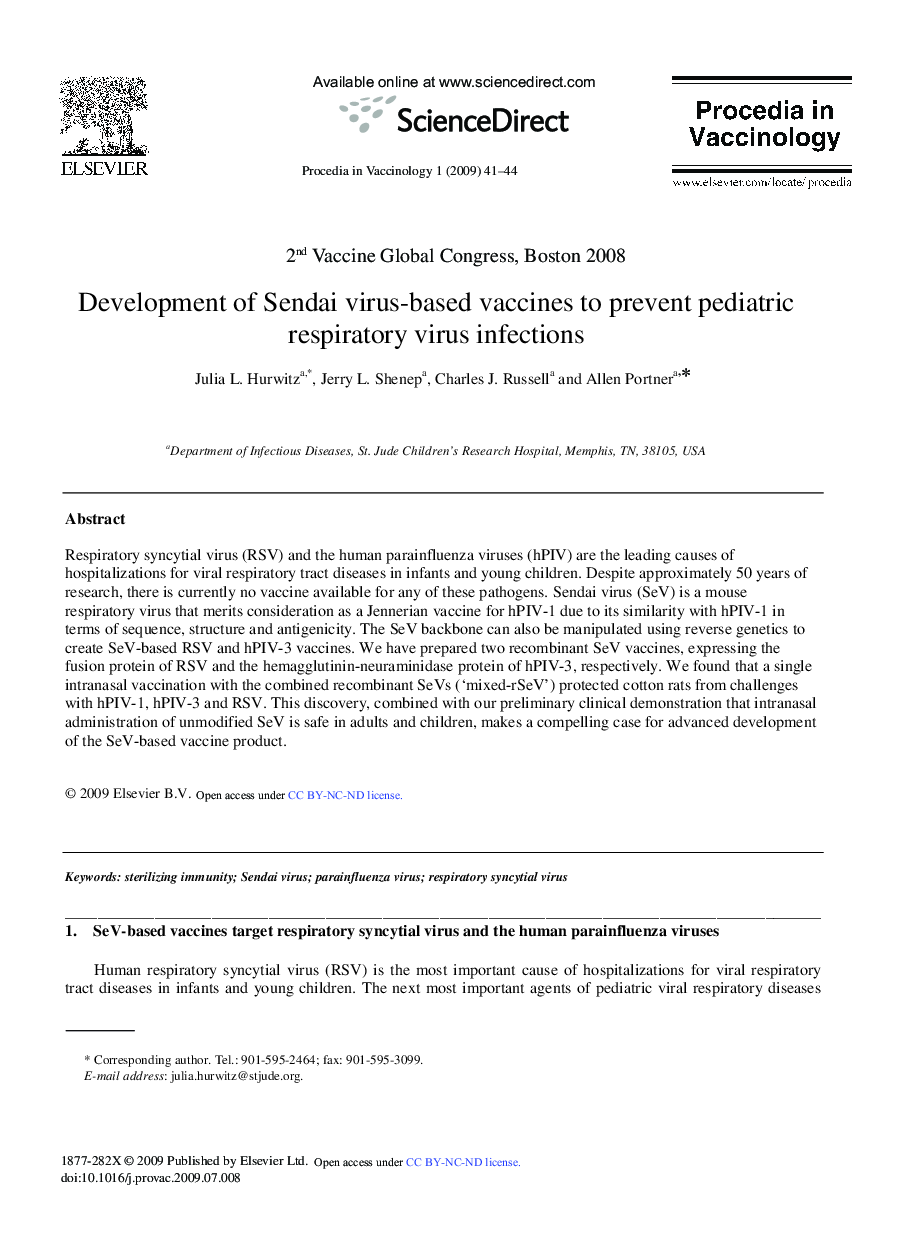| Article ID | Journal | Published Year | Pages | File Type |
|---|---|---|---|---|
| 2473854 | Procedia in Vaccinology | 2009 | 4 Pages |
Respiratory syncytial virus (RSV) and the human parainfluenza viruses (hPIV) are the leading causes of hospitalizations for viral respiratory tract diseases in infants and young children. Despite approximately 50 years of research, there is currently no vaccine available for any of these pathogens. Sendai virus (SeV) is a mouse respiratory virus that merits consideration as a Jennerian vaccine for hPIV-1 due to its similarity with hPIV-1 in terms of sequence, structure and antigenicity. The SeV backbone can also be manipulated using reverse genetics to create SeV-based RSV and hPIV-3 vaccines. We have prepared two recombinant SeV vaccines, expressing the fusion protein of RSV and the hemagglutinin-neuraminidase protein of hPIV-3, respectively. We found that a single intranasal vaccination with the combined recombinant SeVs (‘mixed-rSeV’) protected cotton rats from challenges with hPIV-1, hPIV-3 and RSV. This discovery, combined with our preliminary clinical demonstration that intranasal administration of unmodified SeV is safe in adults and children, makes a compelling case for advanced development of the SeV-based vaccine product.
